Shown two ideal voltmeters and an ammeter, which are connected across the various circuit elements. If the voltmeter connected across 9Ω resistance reads 4.5 V, then answer the following problems.
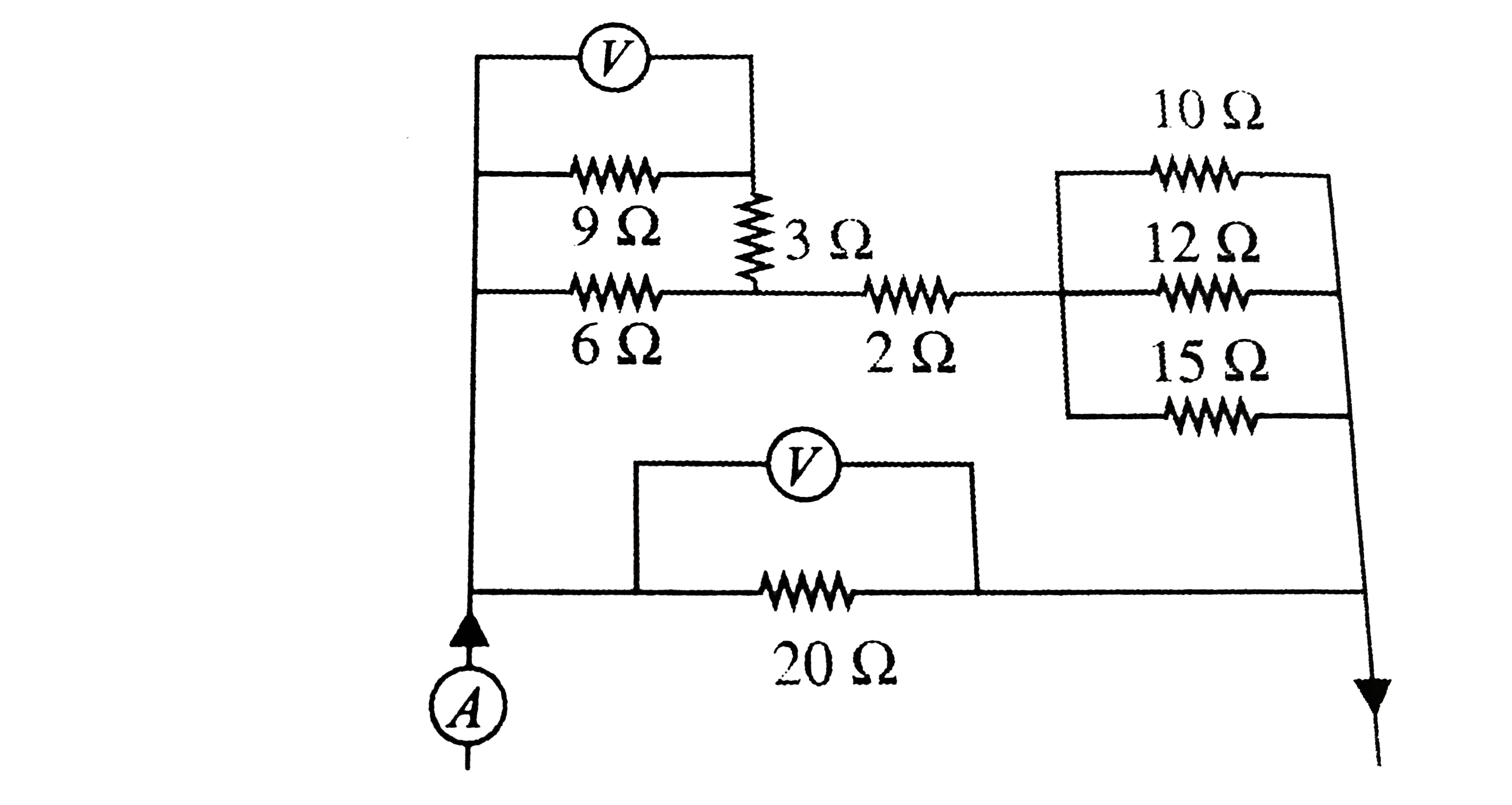
The reading of the voltmeter connected across 20Ω resistance is
15V
10V
5V
22.5V
The correct Answer is:A
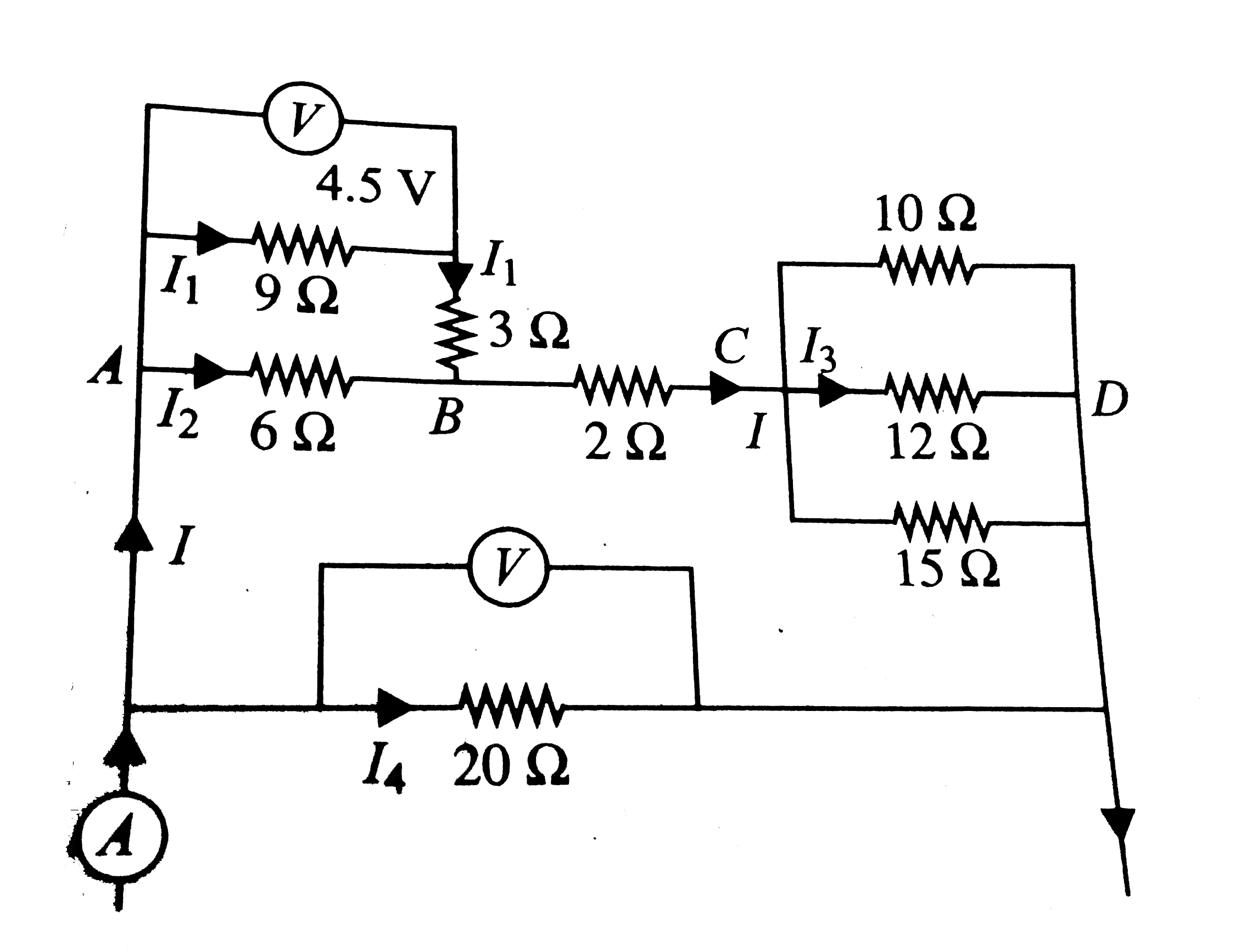
I1=4.59=12A
Potential difference across AB:
4.5+3I1=6I2orI2=1A,I=I1+I2=1.5A
Equivalent resistance between C and D: R1=4Ω
Potential difference across CD:R1I=4×1.5=6V
Current through 12Ω,I3=612=12A
Potential difference across AD is
6I2+2I+12I3=6×1+2×1.5+12×0.5=15V
This will be equal to the reading of voltmeter across 20Ω
I4=1520=0.75A
Reading of the ammeter is I+I4=1.5+0.75=2.25A
Topper's Solved these Questions
- ELECTRIC CURRENT AND CIRCUITBook:CENGAGE PHYSICSChapter:ELECTRIC CURRENT AND CIRCUITExercise:Interger
Explore 8 Videos
- ELECTRIC CURRENT AND CIRCUITBook:CENGAGE PHYSICSChapter:ELECTRIC CURRENT AND CIRCUITExercise:Multiple Correct
Explore 16 Videos
- ELECTRIC CURRENT & CIRCUITSBook:CENGAGE PHYSICSChapter:ELECTRIC CURRENT & CIRCUITSExercise:Kirchhoff s law and simple circuits
Explore 15 Videos
- ELECTRIC FLUX AND GAUSS LAWBook:CENGAGE PHYSICSChapter:ELECTRIC FLUX AND GAUSS LAWExercise:MCQ s
Explore 38 Videos
Similar Questions
In the given circuit, an ideal voltmeter connected across the 10Ω resistance reads 2V. The internal resistance r, of each cell is:
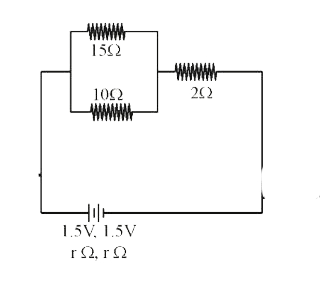
View SolutionIn the circuit shown, reading of the voltmeter connected across 400Ω resistance is 60 V. If it is connected across 300Ω resistance then reading in volt will be
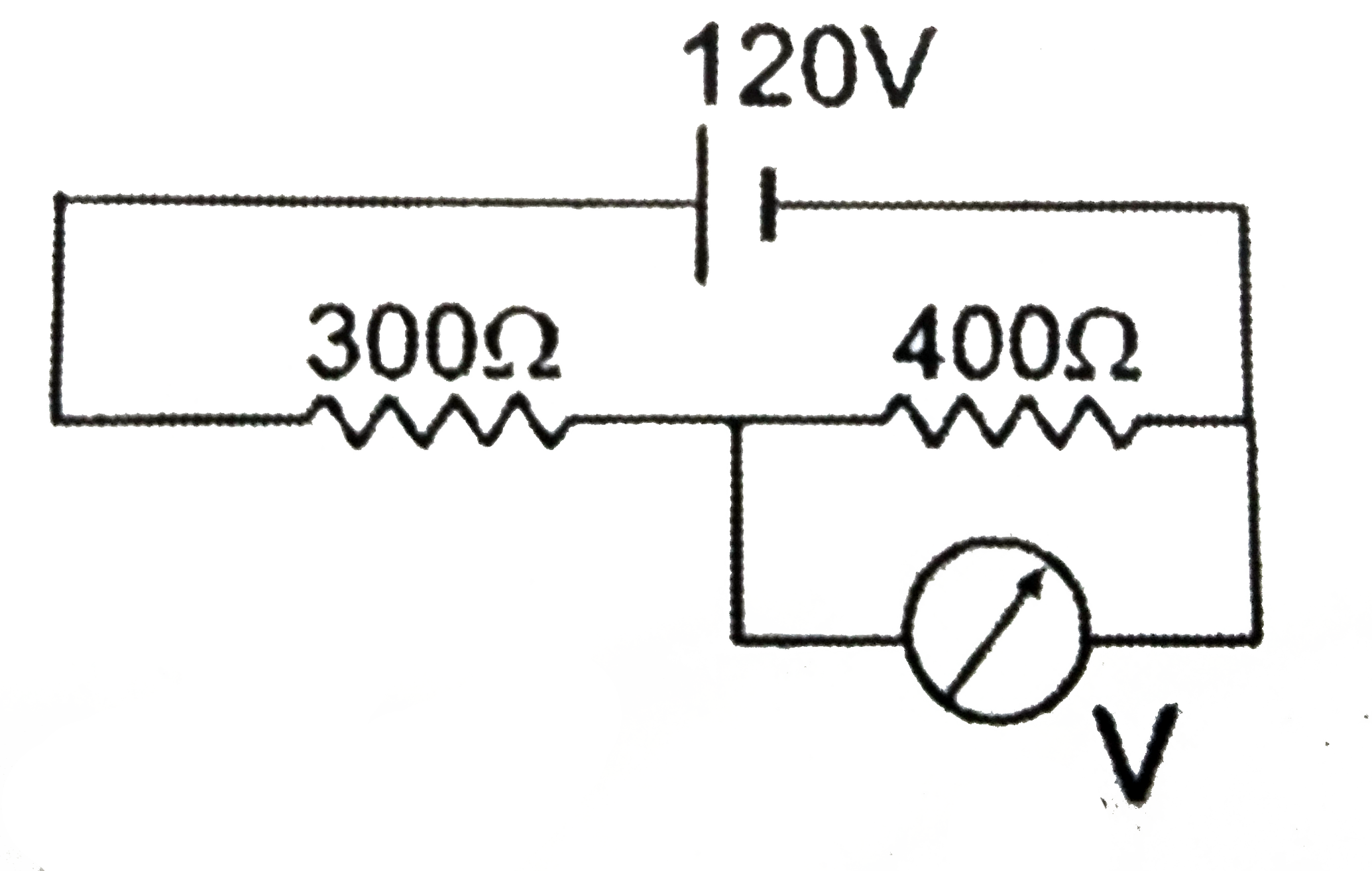
View Solution
Knowledge Check
Shown two ideal voltmeters and an ammeter, which are connected across the various circuit elements. If the voltmeter connected across 9Ω resistance reads 4.5 V, then answer the following problems.
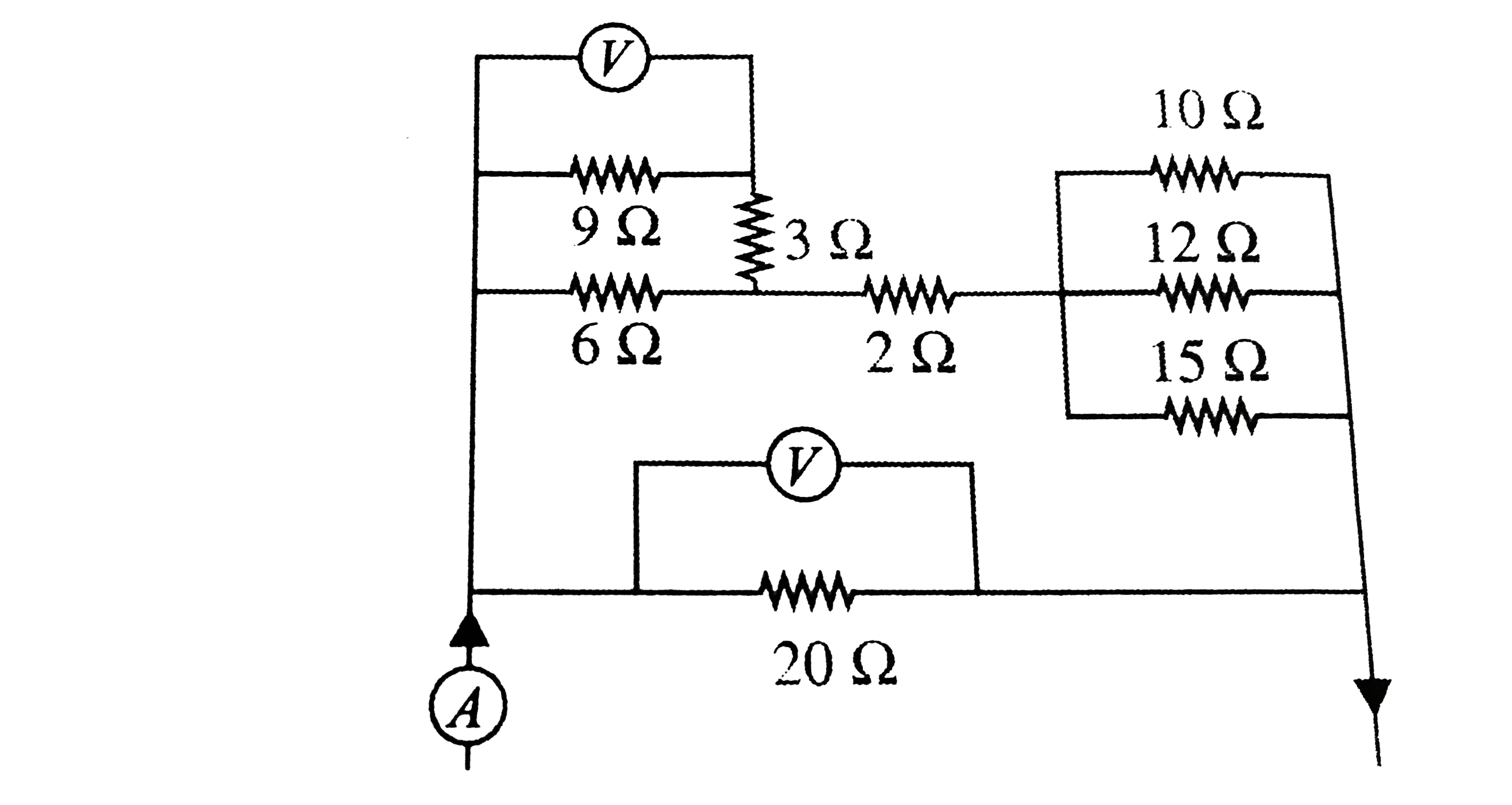
The reading of the ammeter isA0.5AB2.25AC1.5AD0.1AShown two ideal voltmeters and an ammeter, which are connected across the various circuit elements. If the voltmeter connected across 9Ω resistance reads 4.5 V, then answer the following problems.
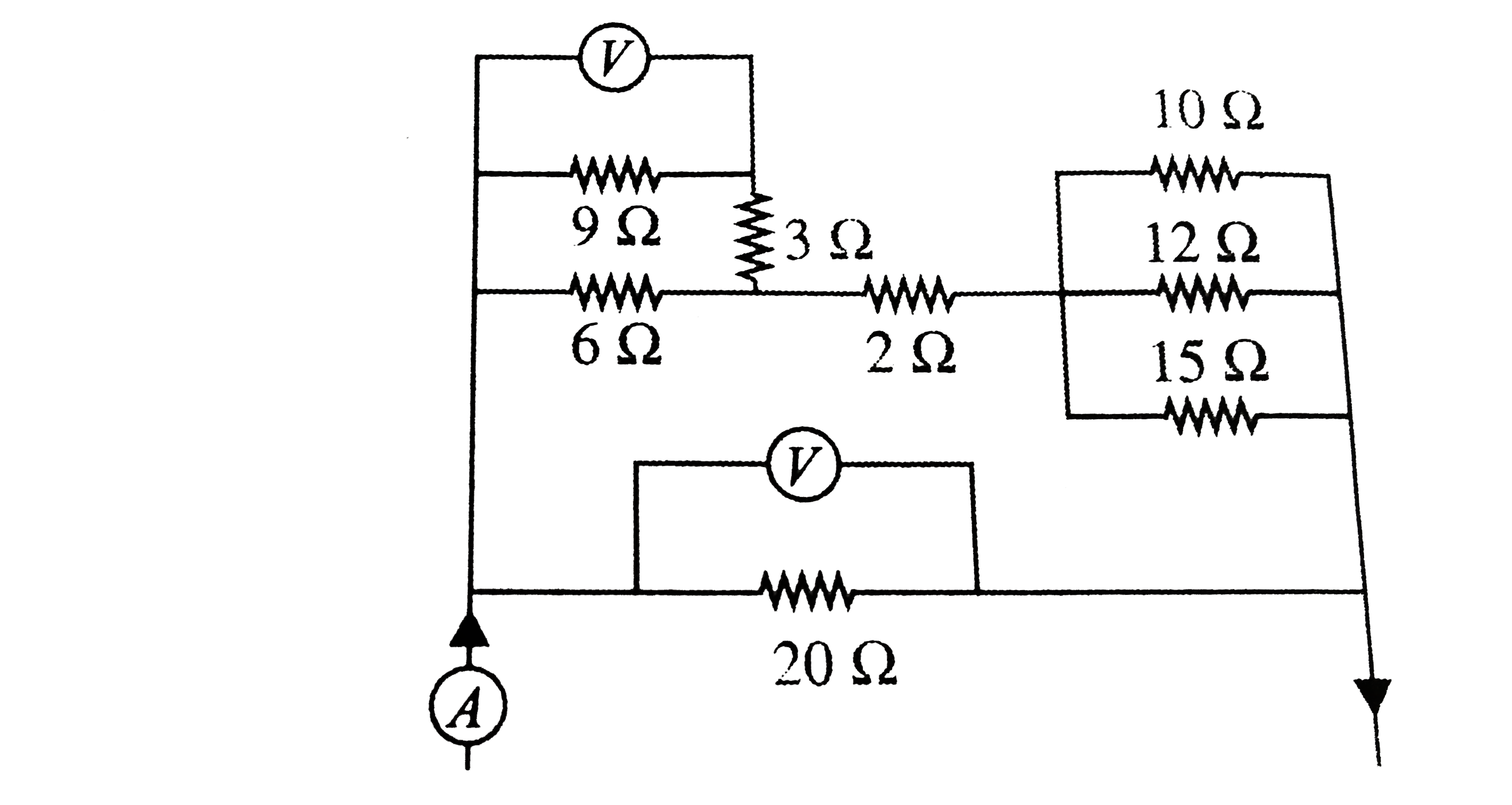
The current through 12Ω resistance isA0.1AB0.75AC0.5AD1.25AIn Fig.6.59, when an ideal voltmetre is connected across 4000Ω resistance, it reads 30V. If the voltmeter is connected across 3000Ω resistance, it will read
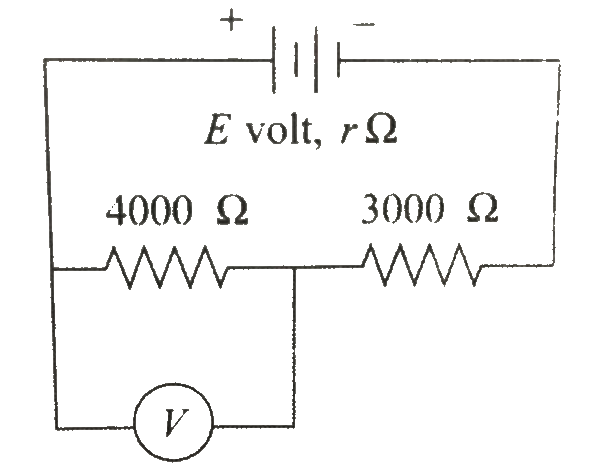 A20VB22.5VC35VD40V
A20VB22.5VC35VD40V
In the circuit diagram shown in Fig. 4.53, a voltmeter reads 30 V when connected across 400Ω resistance. Calculate what the same voltmeter reads when it is connected across 300Ω resistance.
View SolutionIn the circuit shown in figure-3 .3 89, the voltmeter reads 30V when it is connected across 400Ω resistance. Calculate what the same voltmeter will read when it is connected across the 300Ω resistance.
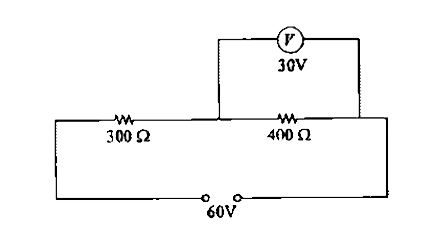
View SolutionIn the circuit, a voltmeter reads 30V when it is connected across 400 Ω resistance. Calculate what the same voltmeter will read when it is connected across the 300Ω resistance?
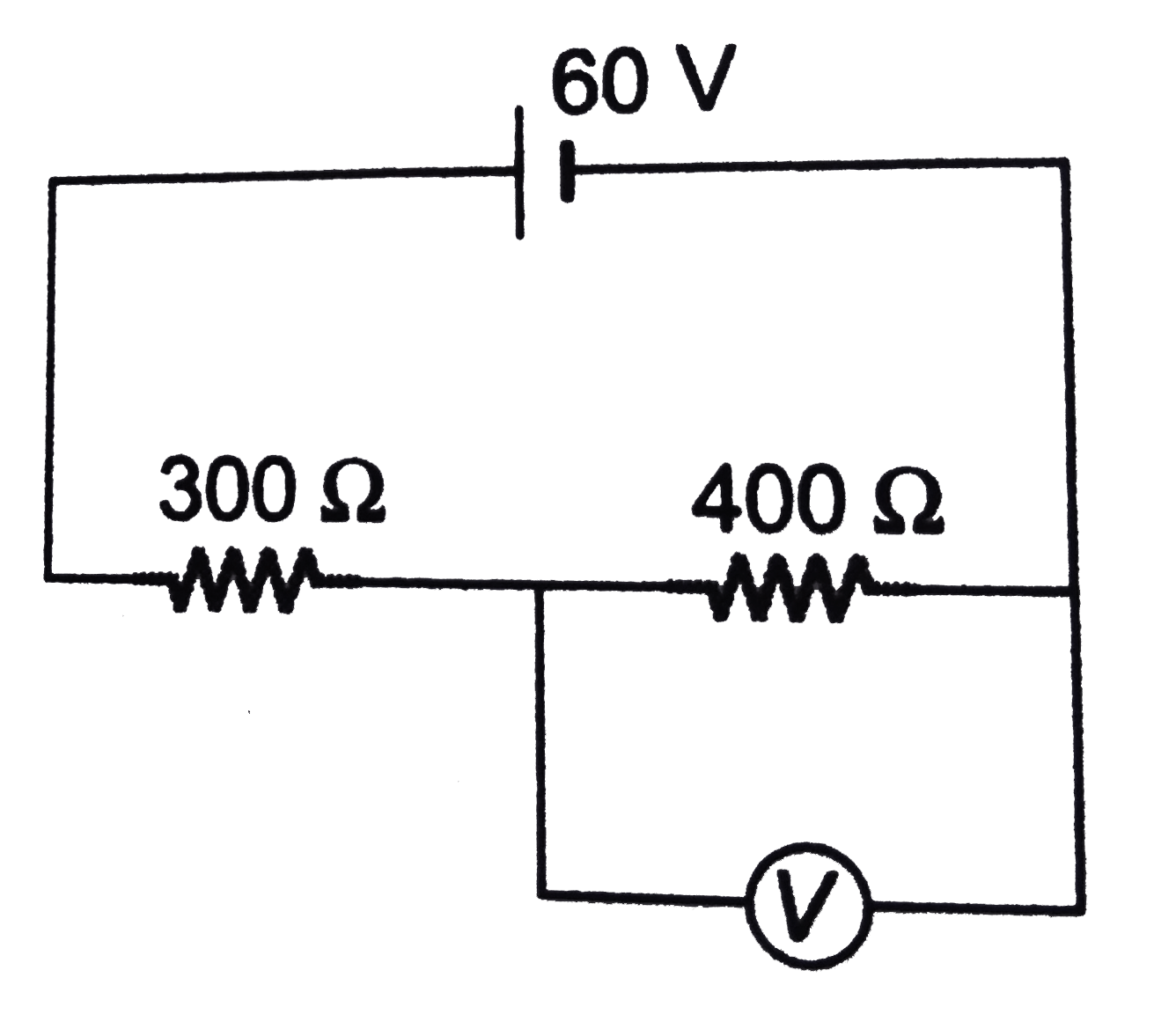
View SolutionIn the circuit given below, a voltmeter reads 20V when it is connected across 400Ω resistance. Calculate what the same voltmeter will read when connected across the 200Ω resistance.
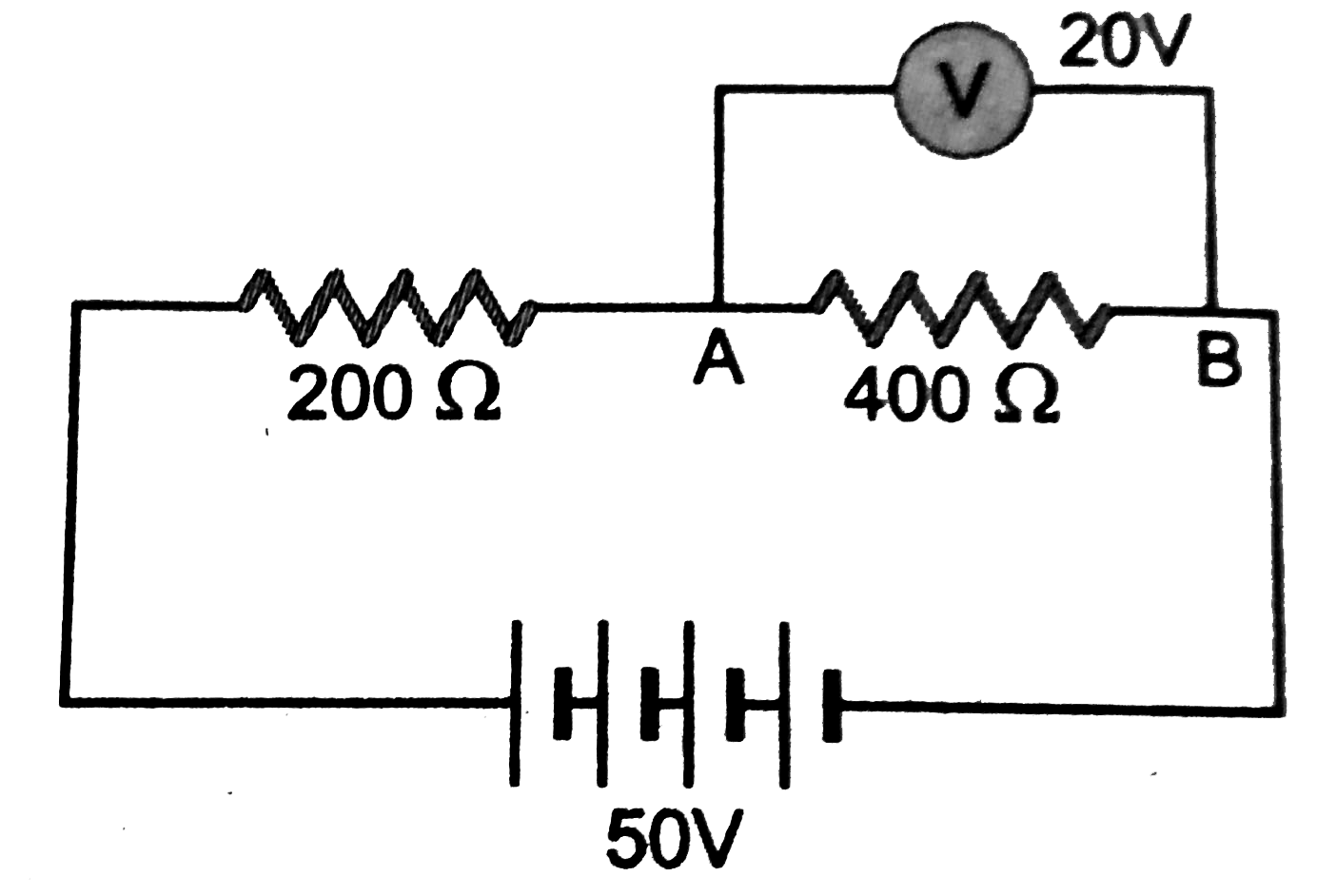
View SolutionA voltmeter of resistance 1000Ω is connected across a resistance of 500Ω in the given circuit. What will be the reading of voltmeter
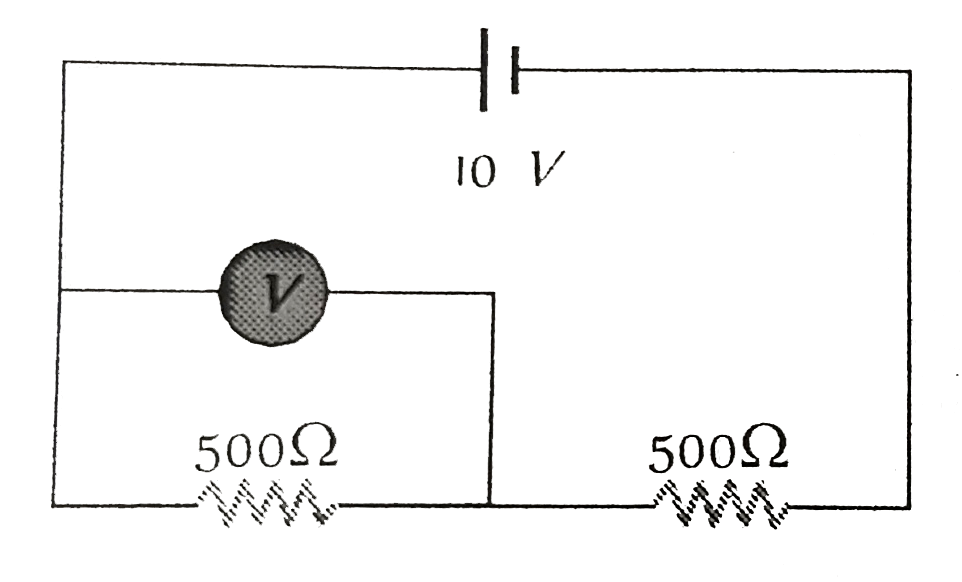
View Solution

